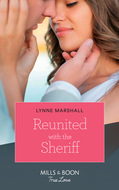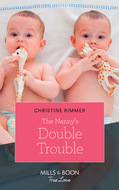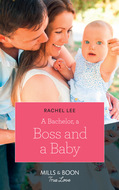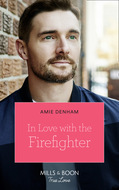Książki nie można pobrać jako pliku, ale można ją czytać w naszej aplikacji lub online na stronie.
Czytaj książkę: «A Diamond In The Snow»
When opposites attract...
They may find their Christmas miracle!
Needing help to organize the Christmas party of the decade, Victoria Hamilton hires the very unconventional yet very charming Sam Weatherby as her PA. With pressure from their parents, both need each other’s help, and when Sam—normally a banker!—is quickly promoted to fake fiancé until the party is over, neither realizes that in the most unexpected place, they may have actually found true love!
KATE HARDY has always loved books, and could read before she went to school. She discovered Mills & Boon books when she was twelve, and decided that this was what she wanted to do. When she isn’t writing Kate enjoys reading, cinema, ballroom dancing and the gym. You can contact her via her website: katehardy.com.
Also by Kate Hardy
Her Festive Doorstep Baby
His Shy Cinderella
The Runaway Bride and the Billionaire
Christmas Bride for the Boss
Unlocking the Italian Doc’s Heart
Reunited at the Altar
Carrying the Single Dad’s Baby
Miracles at Muswell Hill Hospital miniseries
Christmas with Her Daredevil Doc
Their Pregnancy Gift
Discover more at millsandboon.co.uk.
A Diamond in the Snow
Kate Hardy

ISBN: 978-1-474-07822-1
A DIAMOND IN THE SNOW
© 2018 Pamela Brooks
Published in Great Britain 2018
by Mills & Boon, an imprint of HarperCollins Publishers 1 London Bridge Street, London, SE1 9GF
All rights reserved including the right of reproduction in whole or in part in any form. This edition is published by arrangement with Harlequin Books S.A.
This is a work of fiction. Names, characters, places, locations and incidents are purely fictional and bear no relationship to any real life individuals, living or dead, or to any actual places, business establishments, locations, events or incidents. Any resemblance is entirely coincidental.
By payment of the required fees, you are granted the non-exclusive, non-transferable right and licence to download and install this e-book on your personal computer, tablet computer, smart phone or other electronic reading device only (each a “Licensed Device”) and to access, display and read the text of this e-book on-screen on your Licensed Device. Except to the extent any of these acts shall be permitted pursuant to any mandatory provision of applicable law but no further, no part of this e-book or its text or images may be reproduced, transmitted, distributed, translated, converted or adapted for use on another file format, communicated to the public, downloaded, decompiled, reverse engineered, or stored in or introduced into any information storage and retrieval system, in any form or by any means, whether electronic or mechanical, now known or hereinafter invented, without the express written permission of publisher.
® and ™ are trademarks owned and used by the trademark owner and/or its licensee. Trademarks marked with ® are registered with the United Kingdom Patent Office and/or the Office for Harmonisation in the Internal Market and in other countries.
Version: 2020-03-02
MILLS & BOON
Before you start reading, why not sign up?
Thank you for downloading this Mills & Boon book. If you want to hear about exclusive discounts, special offers and competitions, sign up to our email newsletter today!
Or simply visit
Mills & Boon emails are completely free to receive and you can unsubscribe at any time via the link in any email we send you.
For Jo Rendell-Dodd, with love and thanks for
coming on my research trip, and Megan, with love and
thanks for putting up with a recalcitrant author! xxx
Contents
Cover
Back Cover Text
About the Author
Booklist
Title Page
Copyright
Dedication
CHAPTER ONE
CHAPTER TWO
CHAPTER THREE
CHAPTER FOUR
CHAPTER FIVE
CHAPTER SIX
CHAPTER SEVEN
CHAPTER EIGHT
CHAPTER NINE
CHAPTER TEN
EPILOGUE
Extract
About the Publisher
CHAPTER ONE
‘VICTORIA?’ FELICITY, THE textile conservation expert who was doing the annual survey of the displays at Chiverton Hall, stood awkwardly in the office doorway. ‘Could I have a quick word?’
Victoria’s heart sank. Felicity and her team were checking for anything that might need conservation work over the winter. The fact that she wanted a word must mean she’d found something. ‘Bad news?’
‘It’s not all bad,’ Felicity said brightly. ‘There are a couple of rooms where you need to lower the light levels a bit more, to limit the fade damage, but those moth traps have worked brilliantly and there’s no evidence of silverfish or death watch beetle—all the holes in the wood are the same as they were last time round and there’s no evidence of frazz.’
Frazz, Victoria knew, were the little shavings of wood caused by beetles chomping through it. And that would’ve meant major structural repairs to whatever was affected, anything from a chair to floorboards to oak panelling. ‘I’m glad to hear that.’ Though she knew Felicity wouldn’t have come to talk about something minor. ‘But?’
Felicity sighed. ‘I was checking the gilt on a mirror and I found mould behind it.’
‘Mould?’ Victoria looked at her in shock. ‘But we keep an eye on the humidity levels and we’ve installed conservation heating.’ The type that switched on according to the relative humidity in a room, not the temperature. ‘How can we have mould?’ A nasty thought struck her. ‘Oh, no. Is there a leak somewhere that’s caused dampness in a wall?’ Though Victoria walked through the rooms every day. Surely she should’ve spotted any signs of water damage?
Felicity shook her head. ‘I think it probably started before you put in the heating, when the humidity wasn’t quite right, and we didn’t spot it at the last survey because it was behind the mirror and it’s only just grown out to the edge. Unless we’re doing a full clean of the wall coverings—’ something that they only did every five years ‘—we don’t take the mirrors and paintings down.’
‘Sorry.’ Victoria bit her lip. ‘I didn’t mean it to sound as if I was having a go at you.’
‘I know. It’s the sort of news that’d upset anyone.’
Victoria smiled, relieved that the conservation expert hadn’t taken offence. ‘Which room?’
‘The ballroom.’
Victoria’s favourite room in the house; she loved the way the silk damask wall hangings literally glowed in the light. As children, she and Lizzie had imagined Regency balls taking place there; they’d dressed up and pretended to be one of their ancestors. Well, Lizzie’s ancestors, really, as Victoria was adopted; though Patrick and Diana Hamilton had never treated her as if she were anything other than their biological and much-loved daughter.
‘I guess behind the mirror is the obvious place for mould to start,’ Victoria said. ‘We don’t use the fireplaces, so there’s cold, damp air in the chimney breast, and the dampness would be trapped between the wall and the mirror.’
‘Exactly that,’ Felicity said. ‘You know, if you ever get bored running this place, I’d be more than happy to poach you as a senior member of my team.’
Victoria summoned a smile, though she felt like bawling her eyes out. Mould wasn’t good in any building, but it was especially problematic when it came to heritage buildings. ‘Thanks, but I’m never going to get bored here.’ Though if Lizzie, the true heir to Chiverton Hall, had lived, she would’ve been the one taking over from their parents. Victoria probably would’ve ended up working in either food history or conservation but with books, rather than with textiles. ‘How bad is it?’
‘Bad enough that we’ll need to take the hangings down to dry them out. We can’t fix it in situ. Hopefully a thorough clean with the conservation vac and a soft brush will get out most of the damage, but if the material’s been weakened too much we’ll have to put a backing on it.’
‘Worst-case?’ Victoria asked.
‘The silk will be too fragile to go back, and we’ll need a specialist weaving company to produce a reproduction for us.’
Victoria dragged in a breath. ‘The whole room?’
‘Hopefully we can get away with one wall,’ Felicity said.
Even one wall would be costly and time-consuming. ‘I know the actual cost and time to fix it will depend on what the damage looks like on the reverse side, and the wall might need work as well,’ Victoria said. ‘I’m not going to hold you to an exact figure but, just so I can get a handle on this, can you give me a ballpark figure for the worst-case scenario?’
Felicity named a figure that made Victoria wince. It was way over the sum she’d allocated for maintenance in the annual budget. And she knew the insurance wouldn’t cover it because mould counted as a gradually operating cause. She’d have to find the money for the restoration from somewhere. But where?
‘Short of a lottery win or me marrying a millionaire—’ which absolutely wasn’t going to happen because, apart from the fact she didn’t actually know any millionaires, she wasn’t even dating anyone, and her exes had made it very clear that she wasn’t desirable enough for marriage ‘—I’m going to have to work out how to fund this.’
‘Start with heritage grants,’ Felicity advised. ‘You’ll have a better case if you can show that whatever you’re doing will help with education.’
‘Like we did when we installed the conservation heating—putting up information boards for the visitors and a blog on the website giving regular updates, with photographs as well as text,’ Victoria said promptly.
‘And, if we pick the team carefully, we can have students learning conservation skills under our supervision,’ Felicity said. ‘The ballroom is a perfect example of a Regency interior, so it’s important enough to merit conservation.’
Victoria lifted her chin. ‘Right. I’d better face the damage.’
Felicity patted her shoulder. ‘I know, love. I could’ve cried when I saw it, and it’s not even mine.’
It wasn’t really Victoria’s, either. Even though her father had sorted out the entail years ago, so the house would pass to her rather than to some distant male relative, she wasn’t a Hamilton by birth. Her parents loved her dearly, just as she loved them; but she was still very aware that their real daughter lay in the churchyard next door. And right now Victoria felt as if she’d let them all down. She was supposed to be taking care of her parents and the house, for Lizzie’s sake, and she’d failed.
Actually seeing the damage made it feel worse.
Without the mirror over the mantelpiece to reflect light back from the windows opposite, the room seemed darker and smaller. And when Felicity turned off the overhead light and shone her UV torch on the wall, the mould growth glowed luminescent.
‘The hangings from that whole wall are going to have to come down,’ Felicity said. ‘With polythene sheeting over it, to stop the spores spreading.’
‘And everyone needs to be wearing protective equipment while they do it,’ Victoria said. ‘And we’ll have to measure the mould spores in the air. If it’s bad, then we’ll have to keep visitors out of the room completely.’
Felicity patted her shoulder. ‘Don’t worry. We’ll get this fixed so the ballroom shines again.’
Victoria was prepared to do whatever it took. Fill out endless forms, beg every institution going for a loan. Or find a millionaire and talk him into marrying her and saving the ballroom. After her ex had been so forthcoming about where she fell short, Victoria was under no illusions that she was attractive enough for an ordinary man, let alone a millionaire who could have his pick of women; but she knew from past experience that the house was a real draw for potential suitors. All she needed was a millionaire instead of a gold-digger to fall in love with it. Which kind of made her a gold-digger, but she’d live with that. She’d be the perfect wife, for the house’s sake.
When Felicity and her team had left for the day, Victoria walked up and down the Long Gallery with her dog at her heels, just as countless Hamilton women had done over the centuries, not seeing the ancient oil paintings or the view over the formal knot gardens. All she could think about was what a mess she’d made. She wasn’t a coward—she’d tell her parents the news today—but she wasn’t going to tell them until she’d worked out a solution.
Pacing cleared her head enough for her to spend half an hour on the Internet, checking things. And finally she went to her parents’ apartment.
‘Hello, darling. You’re late tonight. Are you eating with us? I’ve made chicken cacciatore—your favourite,’ her mother said.
‘You might not want to feed me when you hear the news,’ Victoria said with a sigh. She wasn’t sure she was up to eating, either. She still felt too sick. ‘Felicity found a problem.’
‘Bad?’ Patrick Hamilton asked.
She nodded. ‘Mould in the ballroom, behind the mirror. They found it when they were checking the gilt. Best-case scenario, they’ll take the hangings down on that wall, dry them out, remove the mould and put backing on the weak areas of silk. Worst-case, we’ll have to get reproduction hangings made for that whole wall. We won’t know until the hangings come down.’ She dragged in a breath. ‘Hopefully we can get a heritage grant. If they turn us down because they’ve already allocated the funds for the year, then we’ll have to raise the money ourselves. We’ll have to raise a bit of it in any case.’ And she had ideas about that. It’d be a lot of work, but she didn’t mind.
‘Firstly,’ Patrick said, ‘you can stop beating yourself up, darling.’
‘But I should ha—’ she began.
‘It was behind the mirror, you said, so nobody would’ve known it was there until it reached the edge,’ Patrick pointed out gently. ‘If I’d still been running the house, the mould would still have been there.’ He narrowed his eyes at her. ‘You’re too hard on yourself, Victoria. You’re doing a brilliant job. This year has been our best ever for visitor numbers, and your mother and I are incredibly proud of you.’ She could hear the worry and the warmth in her father’s voice and she knew he meant what he said. But why couldn’t she let herself believe it? Why couldn’t she feel as if she was enough? ‘Lizzie would be proud of you, too,’ Patrick continued.
At the mention of her little sister, Victoria’s throat felt thick and her eyes prickled with tears.
‘It’ll work out, darling,’ Diana said, enveloping her in a hug. ‘These things always do.’
‘I’ve been thinking about how we can raise the money. I know we usually close from half-term so we have a chance to do the conservation work before the visitor season starts again, but maybe we could open the house at Christmas this year. Just some of the rooms,’ Victoria said. ‘We could trim them up for Christmas as it would’ve been in Regency times, and hold workshops teaching people how to make Christmas wreaths and stained-glass ornaments and old-fashioned confectionery. And we could hold a proper Regency ball, with everyone in Regency dress and supper served exactly as it would’ve been two hundred years ago.’
‘Just like you and Lizzie used to pretend, when you were little and you’d just discovered Jane Austen.’ Diana ruffled her hair. ‘That’s a splendid idea. But it’ll be a lot of extra work, darling.’
‘I don’t mind.’ It wasn’t a job to her: she loved what she did. It was her life.
‘We can hire in some help to support you,’ Patrick said.
Victoria shook her head. ‘We can’t afford it, Dad. The cost of fixing the ballroom is going to be astronomical.’
‘Then we can try and find a volunteer to help you,’ Patrick said.
‘Yes—I can ask around,’ Diana added. ‘There’s bound to be someone we know whose son or daughter is taking a gap year and would leap at the chance to get experience like this. We could offer bed and board here, if that would help.’
‘Maybe this could be the start of a new Chiverton tradition,’ Patrick said. ‘The annual Christmas ball. In years to come, your grandchildren will still be talking about how you saved the ballroom.’
Grandchildren.
Victoria knew how much her parents wanted grandchildren—and she knew she was letting them down there, too.
The problem was, she’d never met the man who made her want to get married, much less have children. Her relationships had all fizzled out—mainly when she’d discovered that the men she’d dated hadn’t wanted her, they’d wanted the house and the lifestyle they thought went with it. Once they’d discovered the lifestyle didn’t match their dreams, she hadn’t seen them for dust. And she’d been stupid enough to be fooled three times, now. Never again.
She’d fallen back on the excuse of being too busy to date, which meant her parents had taken to inviting eligible men over for dinner. Every couple of weeks they’d surprise her with someone who’d just dropped in to say hello. It drove her crazy; but how could she complain when she was so hopeless and couldn’t seem to find someone for herself?
Maybe the one good thing about the ballroom restoration was that it might distract her parents from matchmaking. Just for a little while.
‘A new tradition sounds lovely,’ she said, and forced herself to smile.
‘That’s my girl,’ Patrick said, and patted her on the shoulder. ‘We’ll find you some help. And we’ll get that mould sorted. Together.’
Sam felt a twinge of guilt as he parked on the gravel outside his parents’ house. He really ought to come home more often. It wasn’t that far from London to Cambridge, and he was their only child. He really ought to make more of an effort.
His first inkling that something might be wrong was when he walked into the house with a large bouquet of flowers for his mother and a bottle of wine for his father, and his mother started crying.
He put everything he was carrying onto the kitchen table and hugged her. ‘If I’d known you were allergic to lilies, Mum, I would’ve brought you chocolate instead.’
‘It’s not that. I love the flowers.’ She sniffed.
He narrowed his eyes. ‘What, then?’ Please, not the unthinkable. Several of his friends had recently discovered that their parents were splitting up and were having a hard time dealing with it. But his parents’ marriage was rock-solid, he was sure.
‘It’s your dad. He had a TIA on Wednesday night—a mini-stroke.’
‘What?’ Wednesday was three days ago. He stared at her in horror. ‘Mum, why on earth didn’t you call me? I would’ve come straight to the hospital. You know that.’
She didn’t meet his eye. ‘You’re busy at work, sweetie.’
‘Dad’s more important than work, and so are you.’ He blew out a breath. ‘Is he still in hospital? Is he all right? And how are you doing?’
‘He’s recuperating at home, and I’m fine.’
The first bit might be true, but the second definitely wasn’t. ‘Mum, I hate that you went through this on your own.’ On Wednesday night, he’d been out partying. Without a clue that his father was in the emergency department with a potentially life-changing illness. ‘What did the doctors say?’
‘That if he wants to avoid having another one, or even a full-blown stroke, he needs to take it easier. Maybe think about retiring.’
Which was Sam’s cue to come back to Cambridge and take over Patrick’s place as the head of the family firm of stockbrokers. Leave the fast-paced, high-octane job he loved in the buzzing, vibrant capital for a staid, quiet job in an equally staid, quiet city.
He pushed the thought aside. Of course he’d do the right thing by his family. He wasn’t that shallow and selfish, whatever his girlfriends liked to claim. There was a good reason why he kept all his relationships light. He’d learned the hard way that women saw him as a golden ticket to their future. Which wasn’t what he wanted.
‘And he needs to cut down on alcohol, stop smoking the cigars he thinks I don’t know about, eat more healthily and take more exercise,’ Denise added.
Sam glanced at the wine: his father’s favourite. ‘So this was the worst thing I could’ve brought him.’
‘It’s not your fault, love.’
‘So, what—porridge rather than bacon for breakfast, no salt, and no butter on his vegetables?’ Which meant his father wasn’t going to be happy.
Denise nodded. ‘But they’ve given him medication to thin his blood and stop another clot forming.’ She bit her lip. ‘Next time, it might be a full-blown stroke.’
Which might affect his father’s speech, his mobility and his ability to think clearly. Sam’s duty was very clear. ‘I’ll call my boss tonight and hand in my notice. I’m coming home to support you.’
‘We can’t ask you to do that, Sammy.’
‘You’re not asking. I’m offering,’ he pointed out, and hugged her again. ‘Mum, I want you to promise me you’ll never deal with anything like this on your own again. You call me. It doesn’t matter what time of day or night. You and Dad come first.’
She blinked away tears. ‘Oh, Sammy. I know you’ve got a busy life in London. I didn’t want to bother you.’
‘It bothers me a lot more that you didn’t tell me,’ he said grimly. ‘Promise me.’
‘I promise,’ she said.
‘Good. Put the wine in the rack, and I’ll think of something else to give Dad. Where is he?’
‘In the living room. He’s, um, not in the best of moods.’
Sam could imagine. ‘I’ll get him smiling, Mum.’
Alan Weatherby was sitting in an armchair with a rug over his knees and a scowl on his face.
‘Hey, Dad.’ Sam patted his father’s shoulder. ‘On a scale of one to ten of boredom, you’re at eleven, right?’
‘Your mother fusses and won’t let me do anything. She says I have to rest.’
But his father wasn’t known for sitting still. Resting would be incredibly frustrating for him. ‘Maybe we could go to the golf club and shoot a couple of holes,’ Sam suggested.
Alan rolled his eyes. ‘It’s play, not shoot. Which just shows you’re a complete rookie and you’ll hack divots out of the green and embarrass me.’
Sam didn’t take offence. He knew how he’d feel in his father’s shoes: cooped up, miserable and at odds with the world. ‘A walk, then,’ he suggested. ‘I could take you both to the university botanical gardens.’ A place he knew his mother loved. ‘And we could have a cup of tea in the café.’ Though without the scones and clotted cream he knew his father would like. ‘A change of scenery might help.’
‘Hmm,’ Alan said.
‘In your shoes, I’d be bored and grumpy, too,’ Sam said. ‘But your health’s important, Dad. You need to look after yourself, especially as you’re—’
‘I’m not old, before you say it,’ Alan cut in. ‘Sixty-three isn’t old. There’s plenty of life in me yet.’
‘And I want it to stay that way,’ Sam said. ‘The medics told you to take things easier, eat well, take a bit of exercise and reduce your stress.’
‘Your mother’s trying to make me eat lentils. Lentils.’ Alan looked disgusted.
Sam couldn’t hide a grin. ‘They’re not as bad as you think.’
‘Don’t you start. I thought you’d bring me contraband.’
He had. But only because he hadn’t known the situation. ‘No chance. I want you about for a lot longer.’
‘Is that why you’re dragging your feet about settling down and having children?’
If only his father knew. But Sam hadn’t told any of his family why he’d broken his engagement to Olivia, two years before. Or why he’d got engaged to her in the first place. Even now it left a nasty taste in his mouth. Nowadays he made sure his girlfriends knew that he was looking for fun and not for for ever. Olivia had broken his ability to trust, and he wasn’t sure he wanted to take another risk with his heart.
‘No,’ he said. ‘Dad, there’s an easy solution to all this.’
Alan frowned. ‘What?’
‘Let me take over Weatherby’s from you,’ Sam said. ‘You’ve more than earned some time off to play golf and have weekends away with Mum. And I’ve spent the last six years in the City, learning the ropes. You’ll be leaving the business in safe hands.’
Alan shook his head. ‘The fund you manage is high risk. It’s extreme. Half of our clients would look at your record, panic, and find themselves another stockbroker.’
‘Apart from the fact that any strategy I recommended to a client would depend on the client’s attitude towards risk,’ Sam said dryly, ‘I’m good at my job, Dad. That’s why they promoted me.’
‘You take risks,’ Alan repeated.
‘Calculated ones.’
‘You’re still young and reckless.’
‘I’m twenty-seven,’ Sam said, ‘and I’m not reckless.’
‘Prove it.’
Sam frowned. ‘How?’
‘Take an ordinary job for three months.’
‘How’s that going to prove anything?’ Sam asked, mystified.
‘It’ll show me that you can connect to people in the real word. That you can see that actions have consequences.’
‘Dad, I already do connect to people in the real world, and of course I know that actions have consequences,’ Sam said, frowning.
‘Take an ordinary job,’ Alan repeated. ‘Show me that you can take directions and listen to other people.’
Which had absolutely nothing to do with running a firm of stockbrokers, Sam thought.
Either he’d accidentally spoken aloud, or his doubts showed on his face, because Alan said softly, ‘It’s got everything to do with running the firm. It’s about listening and relating to people—staff as well as clients. In London, you live in a bubble. You’re insulated from your investors and everyone you mix with is like you—young, well-off and living in the fast lane.’
Most people would consider that Samuel Weatherby had made a success of his career. He’d got a job on his own merits after university rather than expecting to be a shoo-in at his father’s business, he’d shown an aptitude for fund management and he’d been promoted quickly. But it sounded as if his father thought his job was worthless, and that hurt.
‘Not all,’ he said. ‘There’s Jude.’ His best friend was an actor with a growing reputation on the stage, and people were talking about him in terms of being the Olivier of his generation.
‘Right now,’ Alan said, ‘I don’t think you’re settled enough to work at Weatherby’s. If I let you take over from me now, it’d be more stressful than running it myself.’
Sam reminded himself that his father had had a rough week—a mini-stroke that had brought him face to face with the idea of getting old or even dying, the prospect of having to change all the things he liked most about his lifestyle and feeling stuck at home when he wanted to be doing what he always did. Right now, Alan was simply lashing out at the nearest target—his son.
‘Take an ordinary job for three months, and if you can do that then I’ll be happy that I’m leaving the family business in safe hands,’ Alan said.
Sam could tell his father to forget it and stomp off back to London in a huff. But the fear he’d seen in his mother’s eyes stopped him. Alan was at risk of another mini-stroke or even a full-blown one. Sam couldn’t stand by and watch his father drive himself into an early grave. ‘So what sort of job do you have in mind, Dad?’ he asked.
‘Actually, now you mention it, there is one,’ Alan said. ‘Working for one of my clients. Nice chap. He owns a stately home. A building problem’s cropped up in the last week or so and they need to raise some money. He was talking to me about cashing in some investments, but as the market’s just dipped I think now’s not a good time.’
Raising money. Sam was very, very good at turning small funds into big ones. But he had a feeling that this particular client wouldn’t be comfortable with the high-risk strategy he’d need to adopt to do that.
‘The job would be voluntary,’ Alan continued, ‘because they can’t afford to pay anyone. You’d be helping to organise the fundraising events.’
Sam couldn’t help smiling.
‘What’s so funny?’ Alan demanded.
‘You wanted me to get an ordinary job. I thought you meant something in retail or a call centre. Ordinary people don’t own stately homes, Dad.’
‘No,’ Alan said crisply, ‘but their visitors and staff are ordinary and you’ll be interacting with them.’
‘A voluntary job.’ Three months with no salary. But he’d be on garden leave; and even if that didn’t work out, he’d managed his personal investments well enough that he could easily afford to take a sabbatical. Jude was coming back from a tour in rep to a three-month run in the West End and could stay at Sam’s flat; it would save Jude having to find a landlady who was happy to have a theatrical lodger, and in return Sam would know that his flat was in safe hands. ‘OK. I’ll talk to him and see if I’ll be a good fit.’
‘Good.’ Alan paused. ‘The botanical gardens and afternoon tea, you said.’
‘One scone, no cream, and no sugar in your tea,’ Sam said.
Alan rolled his eyes. ‘You’re as bossy as your mother.’
Sam grinned. ‘More like I’m as bossy as you, Dad.’
‘You might have a point,’ Alan allowed. ‘Go and tell your mother to get ready. I’ll have a word with Patrick and see if we can line up a chat for tomorrow.’
And Sam would have a quiet chat with his boss. This was time for payback. He wasn’t thrilled with the idea of working in a stately home for three months, but if that was what it took to make sure his father stayed healthy and happy, he’d do it.
Darmowy fragment się skończył.








